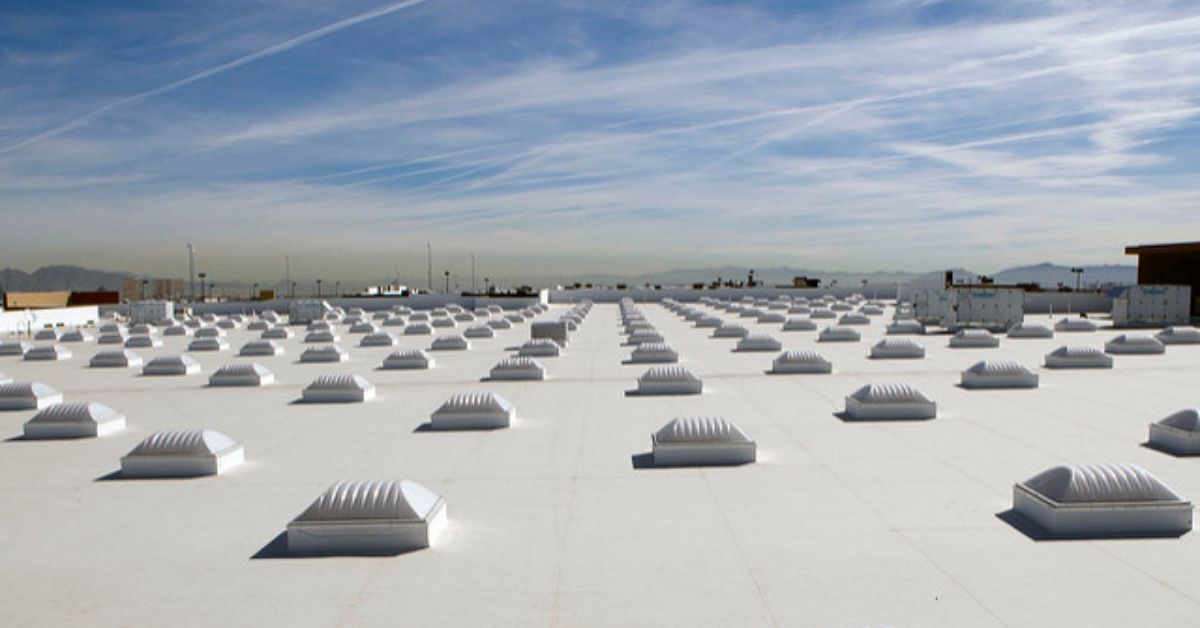Understanding Cool Roofing: An Introduction
In today’s world, where energy efficiency and cost savings are paramount, « cool roofing » has emerged as a brilliant solution. What is cool roofing? Simply put, cool roofing refers to roofing materials that are designed to reflect more sunlight and absorb less heat compared to traditional roofing. This reflective quality can have a significant impact on your home’s energy consumption, thereby reducing utility bills and enhancing comfort. Let’s delve deeper into how cool roofing can save you energy and money.
The Science Behind Cool Roofing
Cool roofs are manufactured using materials that exhibit higher reflectance and thermal emittance than standard roofing materials. This means they reflect more of the sun’s rays and release more heat. The two essential properties to consider are:
- Solar Reflectance: The ability of the roof to reflect solar energy back into the atmosphere.
- Thermal Emittance: The ability of the roof to radiate absorbed heat.
These properties work together to keep the roof surface cooler, ultimately reducing the amount of heat that penetrates into your living space.
Benefits of Cool Roofing
Cool roofing is not just about the science; it’s about tangible benefits that you can see and feel in your home. The following are some key advantages:
Reduced Energy Consumption
Cool roofs can significantly lower your energy usage by reducing the need for air conditioning. By keeping your home cooler, your HVAC system doesn’t have to work as hard, leading to lower utility bills. Studies show that you can reduce energy consumption by up to 15% during peak cooling months.
Improved Comfort
A cooler roof means a cooler home. This is especially beneficial in areas with hot climates where the sun’s rays can cause indoor temperatures to rise dramatically. With a cool roof, your home stays at a more comfortable temperature, even during the sweltering summer months.
Extended Roof Lifespan
High temperatures can accelerate the degradation of roofing materials, causing your roof to wear out faster. Cool roofing materials experience less thermal stress, meaning they tend to have a longer lifespan. This reduces the frequency of roof replacements, translating to long-term savings.
Environmental Impact
By reducing energy consumption, cool roofs contribute to lowering greenhouse gas emissions. Additionally, they can mitigate urban heat island effects, which are localized temperature increases in urban areas caused by human activities. Cool roofs help in reducing ambient air temperatures, creating a more comfortable environment for everyone.
Types of Cool Roofing Materials
There are various types of cool roofing materials available, each catering to different aesthetic preferences and structural requirements. Here’s a look at some popular options:
Cool Roof Coatings
These reflective coatings can be applied to existing roofs. They come in different forms, including elastomeric and acrylic coatings, providing an easy way to enhance the reflectivity of your current roof.
Reflective Shingles
Unlike traditional shingles that tend to absorb heat, reflective shingles are coated with reflective granules that bounce back the sun’s rays. They look similar to traditional shingles but offer enhanced energy-saving benefits.
Metal Roofs
Metal roofing materials, such as aluminum and steel, naturally have reflective properties. When painted with a reflective paint, they become even more effective in reflecting solar energy and keeping your home cool.
Single-Ply Membranes
Consisting of pre-fabricated sheets of PVC or TPO, single-ply membranes are highly reflective and durable. They are an excellent choice for commercial buildings but can also be used in residential settings.
Cost Considerations
When contemplating the investment in cool roofing, it’s essential to consider both initial costs and long-term savings:
Initial Costs
The upfront cost of installing cool roofing materials can be higher than traditional options. However, this varies depending on the type of material you choose. For instance, cool roof coatings are relatively inexpensive, while reflective shingles and metal roofs may require a more significant investment.
Long-Term Savings
The primary financial benefit of cool roofing comes in the form of energy savings. By reducing cooling costs, you can recoup the initial investment in a few years. Furthermore, the extended lifespan of cool roofing materials can save you money on roof replacements in the long term. There may also be tax incentives and rebates available for installing energy-efficient roofing, adding to your savings.
Installation and Maintenance
Proper installation and maintenance are crucial for maximizing the benefits of cool roofing:
Professional Installation
To ensure optimal performance, it’s essential to have your cool roofing installed by a professional. This guarantees that the materials are applied correctly and that the roof is adequately sealed, preventing heat transfer and leaks.
Regular Maintenance
Like any roofing system, cool roofs require regular maintenance to perform at their best. Cleaning the roof surface to remove dirt and debris can help maintain its reflective properties. Periodic inspections are also recommended to identify and address any potential issues promptly.
How to Choose the Right Cool Roofing for Your Home
Choosing the right cool roofing material involves several considerations to ensure it meets your needs and preferences:
Climate
Your geographic location and local climate play a significant role in determining the most suitable cool roofing material. For instance, materials with high reflectance and thermal emittance are particularly beneficial in hot, sunny climates.
Aesthetic Appeal
Cool roofing materials come in a variety of colors and styles, allowing you to choose one that complements your home’s exterior. Whether you prefer the classic look of shingles, the modern appeal of metal, or the simplicity of coatings, there is an option that fits your aesthetic tastes.
Budget
Your budget will also influence your choice. While some cool roofing options may require a higher upfront investment, they often offer greater long-term savings. Balancing initial costs with anticipated energy savings and roof longevity is crucial.
Compatibility
It’s important to ensure that the selected cool roofing material is compatible with your existing roof structure. Consulting with a professional can help you determine the best fit for your home’s architectural style and structural requirements.
Conclusion: Is Cool Roofing Right for You?
Cool roofing offers a myriad of benefits, from reducing energy consumption to enhancing comfort and extending roof lifespan. By selecting the right cool roofing materials and ensuring proper installation and maintenance, homeowners can enjoy significant savings while contributing to a greener environment.
Whether you are building a new home or looking to upgrade your existing roof, investing in cool roofing is a smart choice that pays dividends in energy savings and overall satisfaction. Explore your options, consult with professionals, and take the next step towards a cooler, more energy-efficient home.

